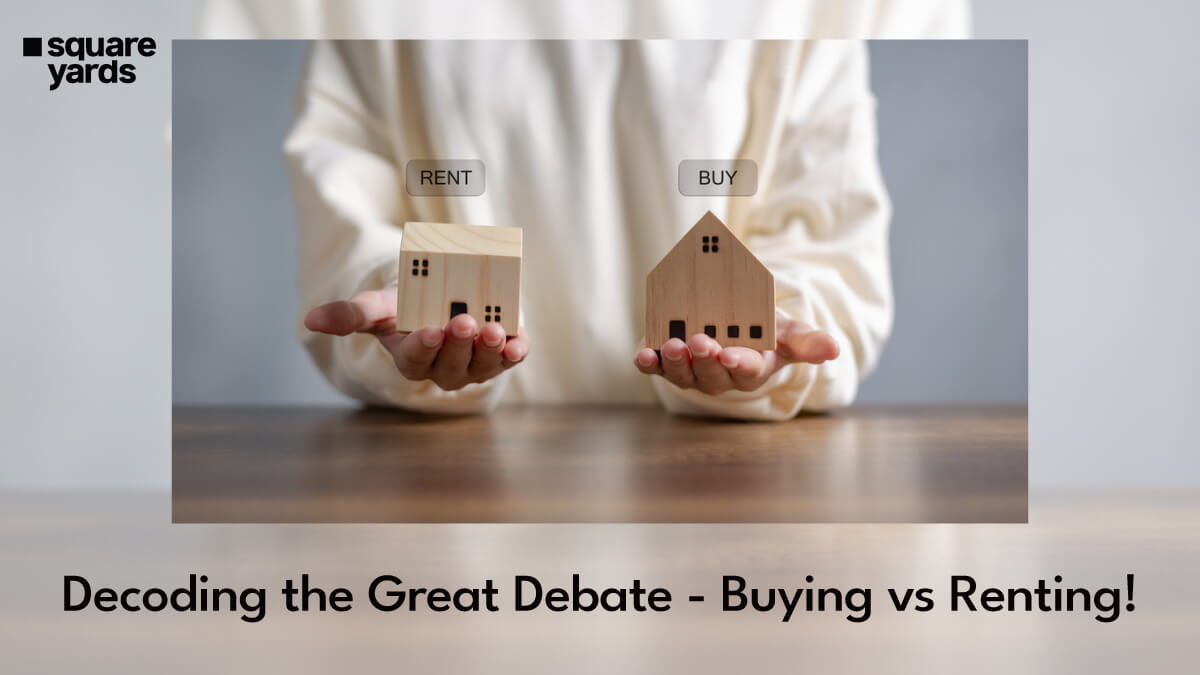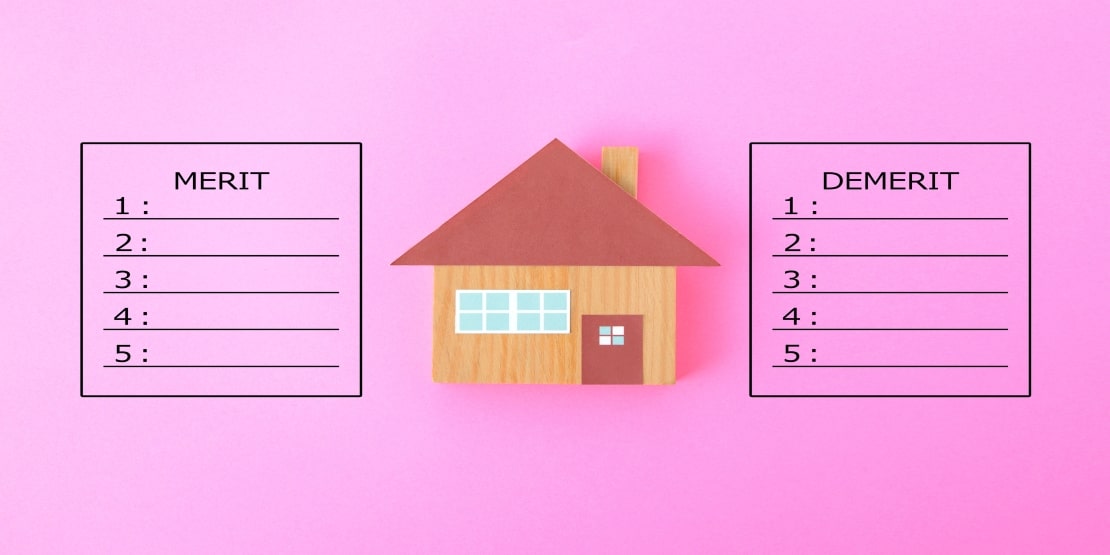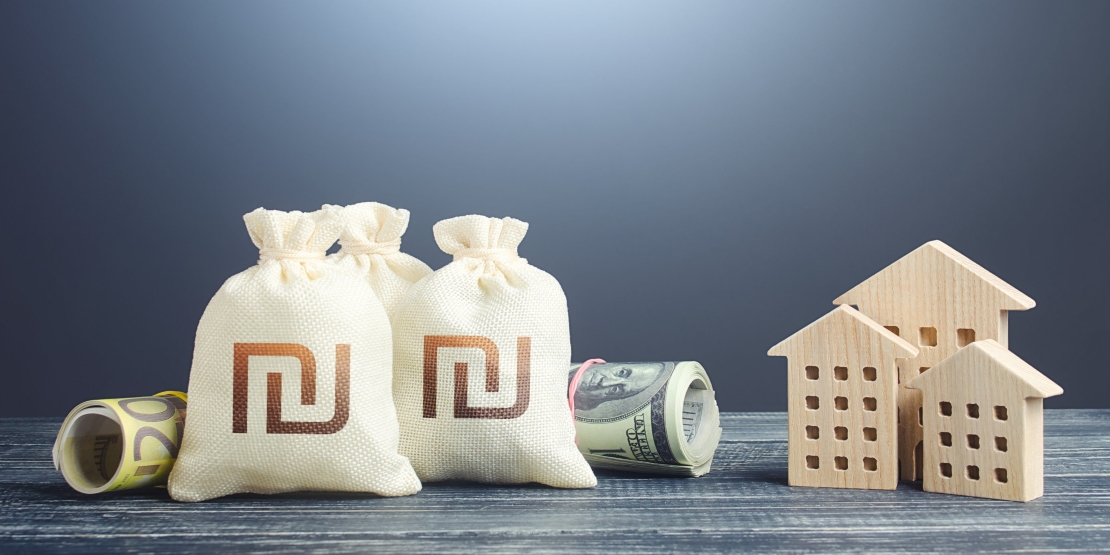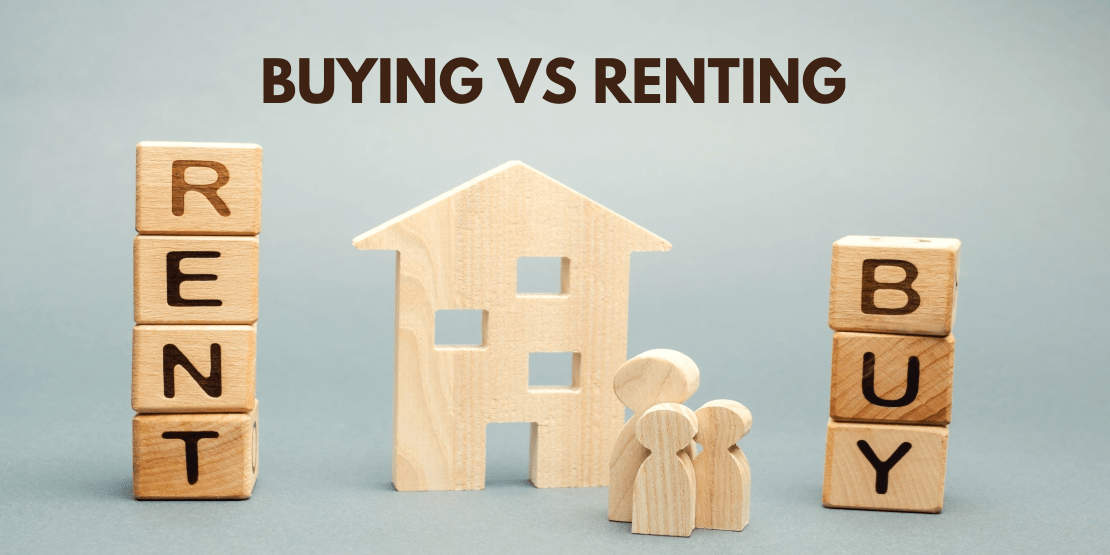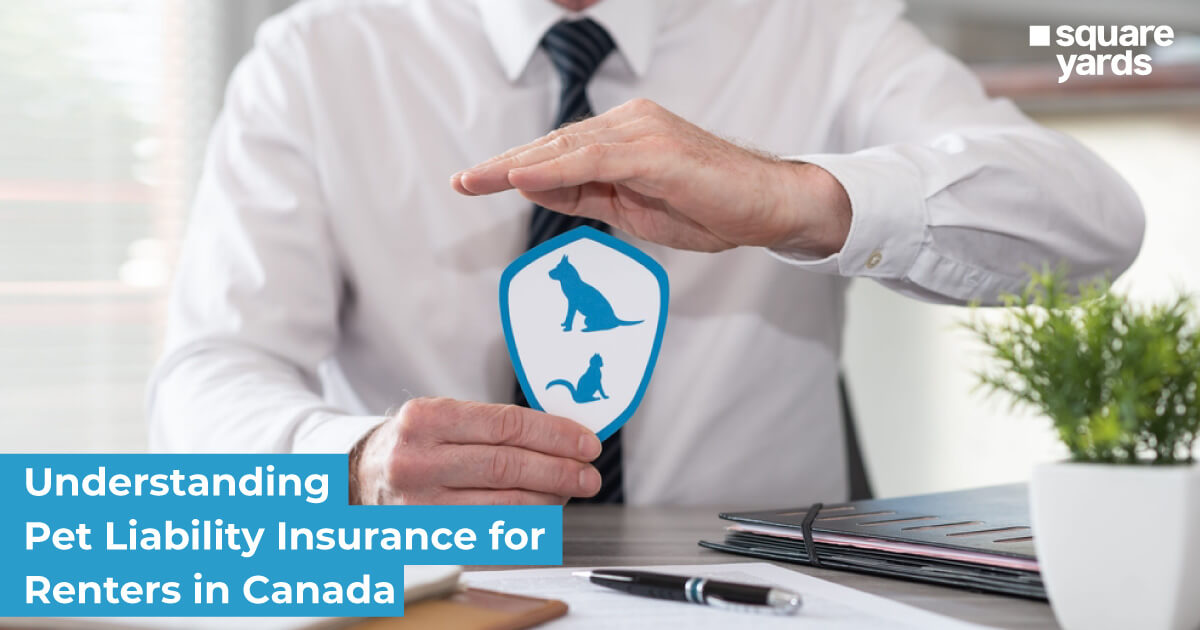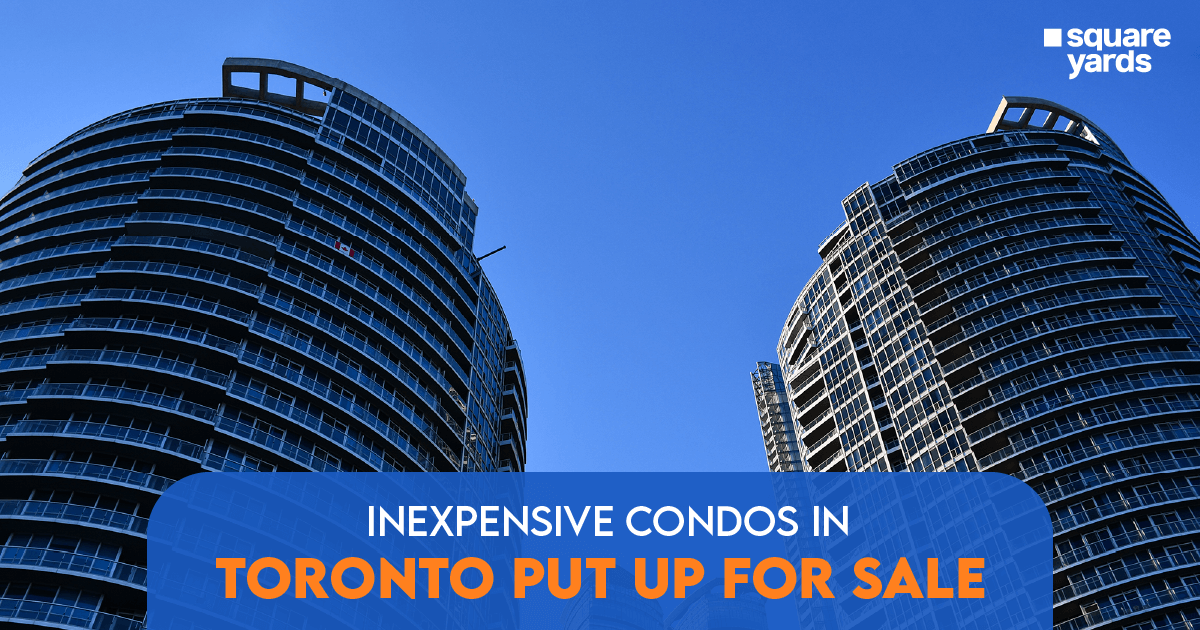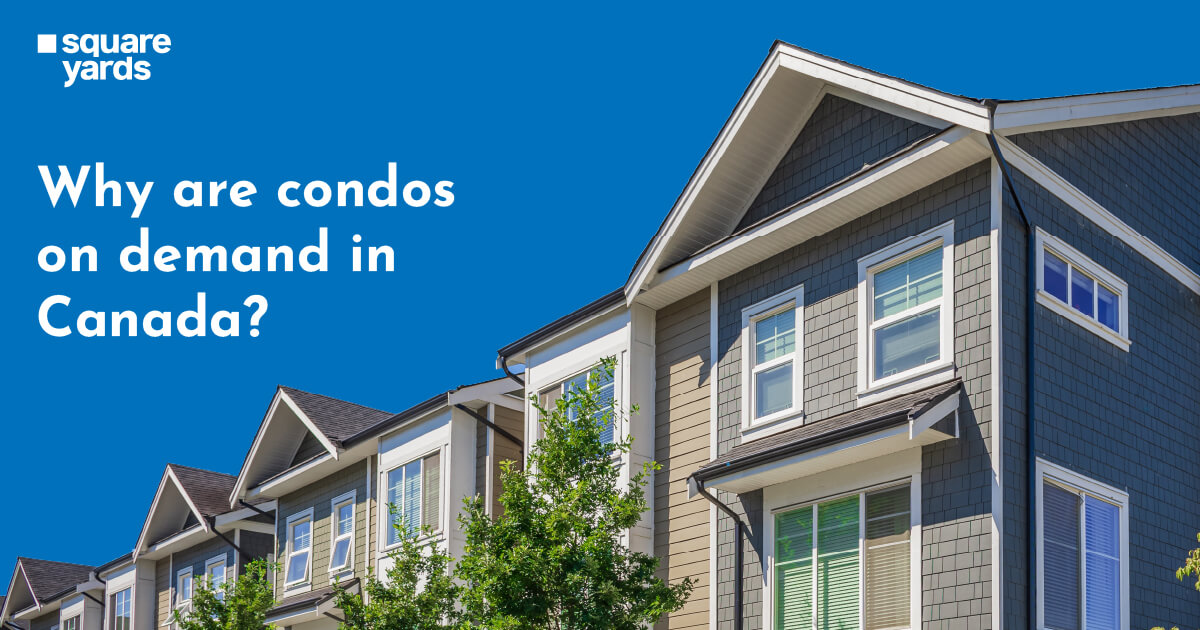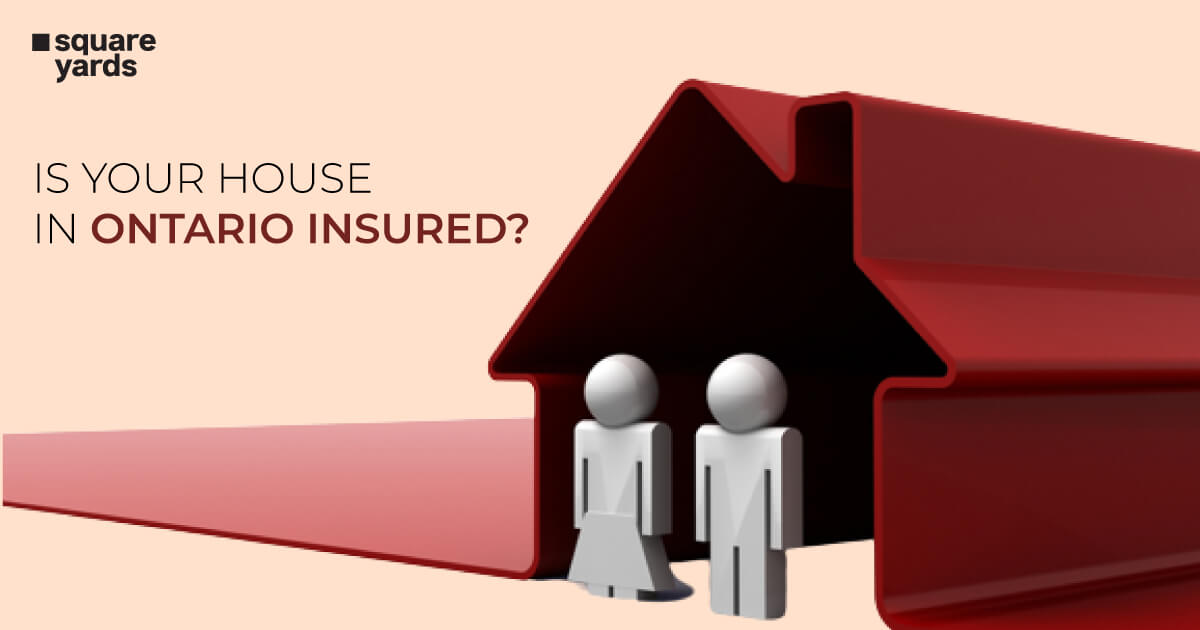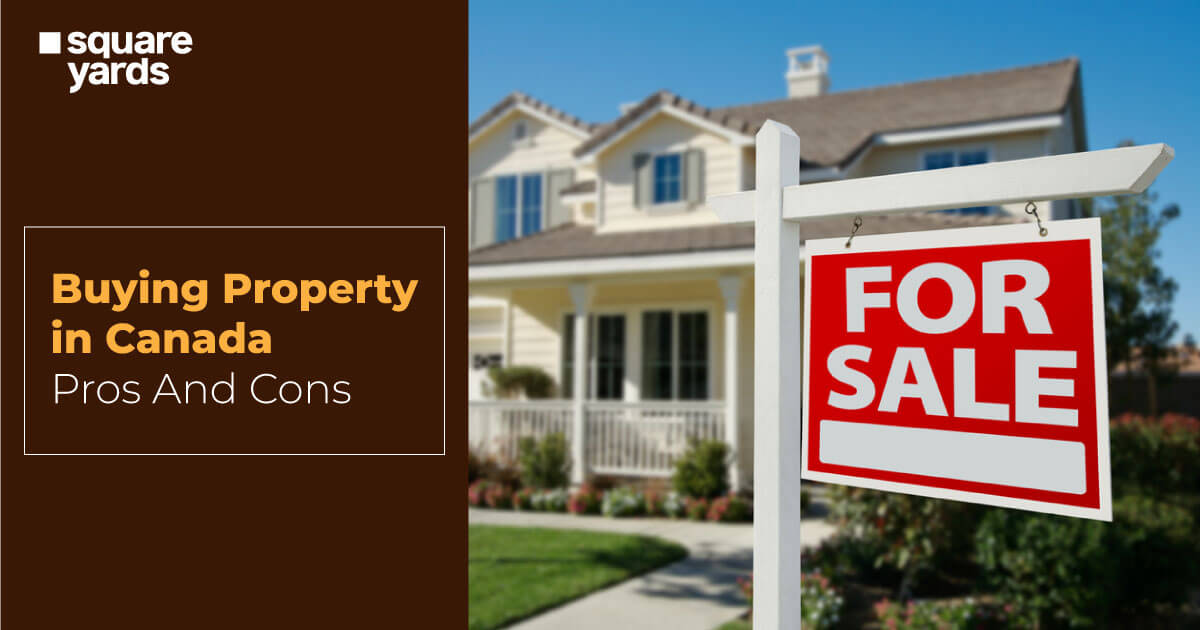Deciding whether to rent or buy a house is a huge deal. While most people these days prefer renting homes, it’s advisable to analyses the pros and cons of both options before finalizing. Scroll down to find which option suits you the best. Should I buy or go for renting homes? It’s a question that we’ve all asked ourselves at least once at some point in our life. It’s probably the most challenging task to deal with, especially in a country like Canada. Known for its expensive real estate, it is a place where owning a home is considered an achievement. Aside from considering your financial position, there are several other factors to bear in mind. Each element has its significance which could mean different things for different people. Therefore, with no proper answer to whether you should rent or buy a house. We have decided to break down the advantages and disadvantages of both scenarios for you for better understanding. Let’s take a clear look at them.
Advantages of Buying a House
Aside from not having to deal with a nosy landlord, there are several reasons why you should consider buying a home. These include:
Equity Building
Purchasing a home through a mortgage helps you own your place month by month. With each mortgage payment you make, you get one step closer to owning your place. This isn’t the case with renting.
A Better Investment Option
The worth of a house increase with time. So, if you purchase a home that fits your budget, you can get a great payoff later. As a general rule, you should hold on to the property for at least five years to take advantage of home appreciation in the future.
Consistency
Since you pay a fixed mortgage rate every month, your payments are predictable. You achieve more stability than renting because you don’t have to worry about rent hikes.
Increased Privacy
Your home is yours; no landlord is monitoring your moves.
Disadvantages of Buying a House
Owning a house involves way more elements than you can imagine. Here are a few disadvantages of home ownership that you should know about:
Serious Commitment
Buying a home is a commitment, a serious investment. If you purchase it through a mortgage, you need to know that you cannot break it whenever you want to. Home-ownership is only beneficial if you plan to sit tight for at least 5 years or more.
Regular Maintenance Costs
Renting the house gives you the leverage of many things like the burden of maintenance doesn’t fall under your responsibility. While buying rental properties, you have to handle regular repairs and maintenance; whether it is fixing the washroom or replacing the rooftop, you’re responsible for it.
Mortgage Costs Can Increase
Paying rent is generally cheaper than paying monthly mortgage costs. Besides, there is a chance for these costs to go higher.
ROI is slow
Property appreciation can take time. Therefore, it’s essential to have patience. You cannot expect the value of your home to increase immediately after you buy it.
Advantages of Renting Homes
Renting is not the obvious choice for everyone, but it offers a fair share of advantages. These include:
Low-Cost
According to experts, renting homes are less expensive than mortgage payments. Most rent payments cover other costs such as cable, internet, utilities, and cable.
Flexible
Renting a property gives you flexibility and does not bind you to one place. It is a short-term option that you can pay for every month. You can easily find a short-term rental through a website.
Minimal Maintenance
When damage around the house happens, such as a broken dishwasher or the basement flooding, you don’t have to fix it. Just reach out to the landlord, and they’ll take care of it for you.
Disadvantages of Renting Homes
There are multiple reasons why many people don’t suggest houses for rent as an option. If you’re wondering what these reasons are, take a look below:
No Equity Building
Buying the house always allows you to build equity; renting doesn’t. The sad part is that you pay a specific amount every month to pay someone else’s bills or mortgage.
Landlord Will Always Be In Charge
We have read and heard about landlords issuing eviction notices. When you rent, you’re constantly reminded that the landlord is the boss and that you do not own the place you live in.
Fluctuation
The landlord may increase rent depending on the local laws. A hike in rent could make you want to move to a new place, which is not an option if you’re short of money.
Making the Big Decision
Before deciding if you want to own or rent a house, it is crucial to examine your present financial situation. You also need to set specific short and long-term goals to figure out what you want. Ask yourself the following questions.
Where do you wish to live?
Renting or owning a place come later; you need first to decide where you want to live? Once you have that figured, you can compare analyzing that area’s mortgage or renting property costs. Popular places like Toronto and Vancouver will have higher rent than lesser-known areas like Nelson and Churchill. You can also go through varied websites to determine what homes are selling in your preferred area and information related to them. Just keep in mind that instead of spending $3000 or more per month on rent, it’s better to opt for a mortgage.
Are you following the 30% rule?
The “30% rule” suggests that you should spend less than 30% of your gross income on your monthly mortgage payment. (The gross income of an individual is the total income before taxes and other deductions). The 30% rule is a general rule that one must follow when purchasing a home in a slow or robust economy. Exceeding the percentage could result in financial losses or struggles later.
What is your current employment situation?
With a fixed income and a stable job, you can always choose to buy a house. However, if it’s not stable, you might face problems convincing lenders for mortgages. So, make sure you analyze your employment picture before reaching a decision.
What is the period you intend to live in your home?
With so many things to examine, it’s natural to forget about thinking about the obvious. That is, how long will you be living in your home? The longer you plan to live, the better your investment will be. If the stay is short, it’s better to go for renting.
Are you prepared to commit?
Owning a home is a big responsibility. It means that you agree to handle several responsibilities and changes related to utilities, maintenance, property taxes, mortgage and more. Ask yourself if you are ready to manage everything. If you’re not sure how to buy a rental property in Canada, refer to our blog to find out more about it.
Owning a Home – The Cost Breakdown
If you’re confident that you want to buy a house, make sure you go through the financial obligations.
Down Payment
Buying a house requires paying at least a 20% down payment. It is a standard amount that any mortgage lender would ask for. Spending less than 20% makes you eligible for CHMC insurance, i.e. Canada Mortgage and Housing Corporation mortgage insurance.
Closing Expenses
There are many more responsibilities attached to buying a house than just paying its total cost. The additional costs that you spend come under closing expenses. This involves appraisal fees, tax adjustments, home inspection charges, and lawyer’s fees.
Insurance
Purchasing a house is a considerable expense. It is not an investment that you make every day. Naturally, you’d want to protect it with home insurance.
Maintenance Costs
It doesn’t matter if you bought a newly built house or a used one; you’ll have to get some maintenance done. This involves everything from roof repairs and electric circuits installations to plumbing and security. Try planning the pre-decided budget while purchasing a home and then continue every year for such maintenance.
Which Is Better – Buying or Renting?
After analyzing the pros and cons, if you think home ownership is for you, make sure you contact an experienced mortgage lender. Finding the right lender in Canada would make things easier for you regarding lower interest rates. Take time to research because we don’t want your money to go in vain.
If you are leaning towards renting homes, you will also avoid extra costs associated with maintenance and property taxes.
In conclusion, we’d again say that there is no definite or better answer to this question. It is a never-ending debate that involves several factors from both ends. To reach a decision, you will have to consider your existing financial situation along with your location and goals. Once you have those determined, you will automatically get to a verdict.
Frequently Asked Questions (FAQs)
There is no age bar when buying a home in Canada or anywhere in the world. But apart from the age bar, there are some crucial factors to consider when making a home buying decision if you are retired or near retirement.
If you like it, then why not? There's nothing wrong with purchasing it. However, it is advisable to visit the place in person twice or thrice before signing the contract. Inspect every aspect of the property thoroughly, take help from a lawyer if necessary and then decide.
It depends on the kind of house you are renting. As per a recent survey, you'll pay around $1,400 when renting 1BHK. For 2 bedroom home, you will have to pay about $1,800. The rent differs from neighborhood to neighborhood and province to province.
October to April is considered the best time to renting homes because of lower rental rates. However, the best time to rent is right after the holiday season (December and March). No one wants to move during this time because of bad weather, and homeowners are desperate to rent out.
Whether it is cheaper to rent or buy a house in Canada depends on location, housing market conditions, mortgage interest rates, and personal financial circumstances. In some areas, renting may be more affordable, especially in cities with high housing prices. However, in the long run, buying a house can be a wise financial decision as it allows you to build equity and potentially benefit from property value appreciation. It is important to carefully evaluate your financial situation and consider housing affordability, long-term plans, and market conditions before deciding whether to rent or buy a house in Canada.
Buying a house in Canada can be a good investment for several reasons. Real estate has historically shown long-term appreciation in value, providing potential financial gains. Homeownership also offers stability and the opportunity to build equity over time. Additionally, owning a home can provide a sense of pride, security, and the freedom to customise and personalise your living space. However, conducting thorough research, considering market conditions, assessing your financial readiness, and seeking professional advice before making any real estate investment decisions are crucial.
The decision of when to buy a house in Canada depends on various factors, including your personal circumstances, financial readiness, and the housing market's current state. Monitoring market conditions, including interest rates, housing inventory, and price trends, is advisable. Timing can also be influenced by factors such as your long-term plans, stability in income, and availability of down payment funds. Consulting with a real estate professional or financial advisor can help you decide on the right time to buy a house in Canada based on your situation. What age is too late to buy a home in Canada?
Is buying the first house I see a good decision?
What is the average house rent one can expect to pay in Canada?
Which is the best month to rent?
Is it cheaper to rent or buy a house in Canada?
Is buying a house a good investment in Canada?
When should I buy a house in Canada?

